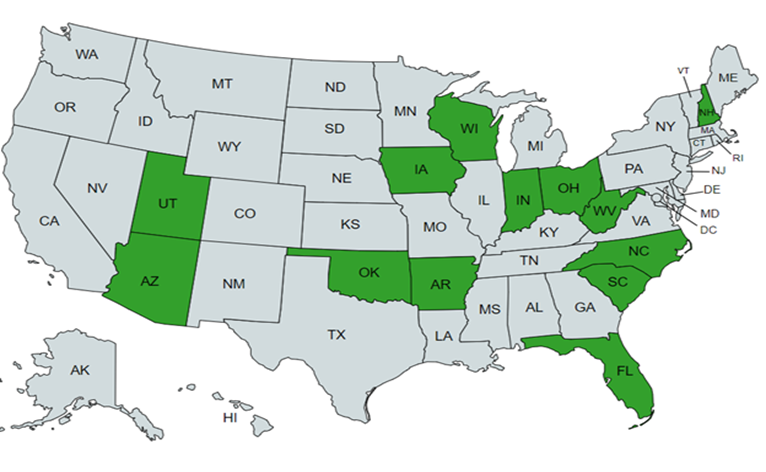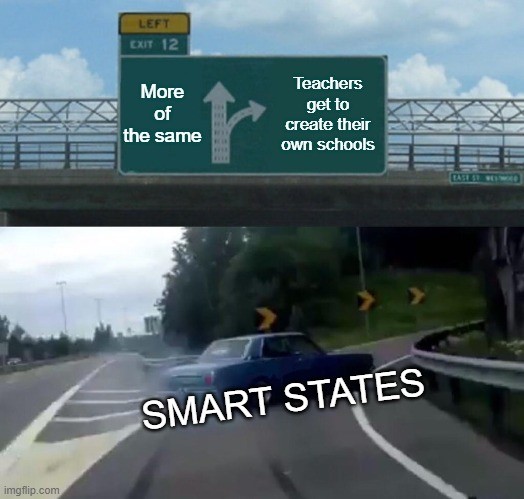
American scientist and futurist Roy Amara (on the left above) coined a phrase which came to be known as “Amara’s Law.” Amara’s Law holds that:
We tend to overestimate the effect of a technology in the short run and underestimate the effect in the long run.
Recently America’s financial journalist Jim Grant expressed a related notion on the Odd Lots podcast saying “The inevitable is always certain but not always punctual.”
Below is a back of the napkin estimate by your author on states that will be practicing “relatively robusto” private choice in 2024. By “relatively robusto” I mean “wow we would have been pleased as punch to see this mix of programs in a state in 2019.” This is not to say the mix of policies in these states is perfect, just relatively rubusto.

Texas may hold a special session on choice in the Fall of 2023 and could yet join in on the fun. What do the insights offered by Amara and Grant have to offer the choice community going forward?

Amara’s law applies to the new choice programs: the K-12 world will not shift overnight in any of the states that have passed rubusto private choice. Adoption will be faster than in the past, but there will be no mad rush to enroll. Lawmakers will need to work kinks out of statutes, new K-12 space added over time, administrators will make mistakes and (sometimes) will even correct them.
Over time, empowering teachers to start their own schools, and giving families the opportunity to collectively decide which will thrive and close will have a profound impact; it is just not going to happen overnight.
Grant’s observation applies more to the ongoing decline in district schooling: the inevitability of this decline does not dictate the pace. The core problem of American public schooling, regulatory capture, has never been more obvious to a much broader universe of people and will not be exiting the scene during the lifetimes of anyone reading this today.
The horrific practice of killing whales for lamp oil went on for seven inexplicable decades after the first drilled well for “rock oil” gushed in Pennsylvania. Zip code assignment of students to
schools whose politics are under the heavy sway of unions will continue for a lamentably long time. The conclusion of this barbarism is inevitable, but it (sadly) will not be punctual.


